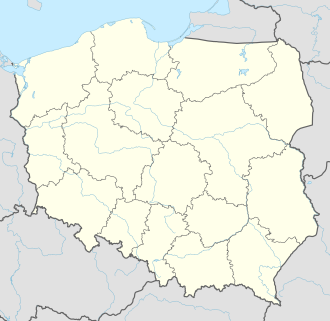You can help expand this article with text translated from the corresponding article in Polish. (August 2022)Click [show] for important translation instructions.
|
| Rabsztyn Castle | |
|---|---|
 Rabsztyn Castle | |
| Location | Rabsztyn, Lesser Poland Voivodeship, Poland |
| Coordinates | 50°18′03″N19°35′39″E / 50.30083°N 19.59417°E |
| Built | 13th-century |
| Architectural style(s) | Gothic |
Rabsztyn Castle is a preserved Gothic ruined castle located in the Polish Jura within the Eagles' Nests Trail, in the village of Rabsztyn, Lesser Poland Voivodeship in southern Poland. [1]
Contents
The etymology of Rabsztyn Castle derives from the German Rabenstein, translating to Raven's Rock. [2]
Having undergone extensive reconstruction, since May 2015, the castle has been opened to tourists. [3]
- Castle ruins, before 1932 1879
- Castle ruins, before 1932
- Rabsztyn Castle during reconstruction
- Rabsztyn Castle after reconstruction




